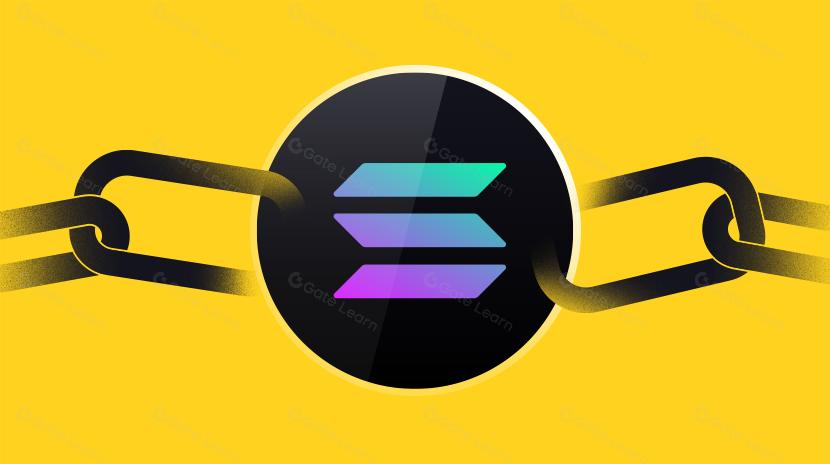Define Fungible

What Does Fungibility Mean?
Fungibility refers to the property of an asset where each unit is interchangeable and holds equal value within its category.
For example, with cash, one 100-yuan bill is functionally identical to another 100-yuan bill during transactions—both hold the same value and can be used interchangeably. In the crypto world, one BTC or one USDT is considered equivalent to any other unit of the same token when trading or settling transactions. This is the essence of fungibility. In contrast, NFTs are non-fungible, as each token represents a unique item and cannot be swapped on a one-to-one basis.
Why Is Fungibility Important?
Fungibility impacts price formation, liquidity, and the range of possible use cases.
The higher the fungibility, the easier it is to match trades and form a unified market price. Spot markets on exchanges rely on fungibility to aggregate diverse buy and sell orders into a single market price, improving capital efficiency. Stablecoins are highly fungible, making them ideal for payments, settlements, and cross-platform transfers.
If an asset's fungibility is compromised—such as through blacklisting or special restrictions—the market distinguishes between "clean" and "tainted" coins, leading to discounts and reduced liquidity. Understanding this helps you better assess transaction costs and potential risks.
How Does Fungibility Work?
Fungibility is enabled by standardized rules, uniform units, and accounting methods that do not differentiate between sources.
On Ethereum, ERC-20 is the most widely used standard for fungible tokens. It defines interfaces for transfers, balance inquiries, and more, ensuring that wallets and exchanges treat every unit of a given token identically, thereby supporting interchangeability.
On-chain accounting tracks balances rather than assigning unique identifiers to each coin. This inherently supports fungibility. As long as smart contracts do not introduce special treatment for whitelists or serial numbers, all tokens of the same type remain indistinguishable.
However, there are exceptions in practice. If certain addresses are flagged by judicial or compliance systems, these "source differences" reduce fungibility, causing some funds to trade at a discount or be restricted on certain platforms. This explains why privacy solutions and compliance-cleaning tools are highly valued in the market.
How Is Fungibility Manifested in Crypto?
Fungibility is most evident in spot trading on exchanges, stablecoin payments, and DeFi liquidity pools.
On Gate's spot market, fungible tokens like BTC, ETH, and SOL are quoted and traded as standardized units. Users do not need to care about the origin of the tokens—only price and quantity matter. This is a direct expression of fungibility in trading.
For stablecoin payments, merchants who accept USDT do not differentiate based on a token’s transaction history; as long as the contract address and denomination match, the payment is accepted. Fungibility ensures efficient settlement and smooth cross-platform transfers.
On decentralized exchanges (DEXes) and within liquidity pools, similar tokens are pooled together and priced according to mathematical formulas. Anyone can swap one token for another of the same kind or for a different asset. Strong fungibility guarantees price stability within pools and keeps slippage low. For instance, participating in Gate’s liquidity mining or market-making depends on token fungibility to provide unified pricing and returns.
How to Buy Fungible Tokens?
Choose a compliant platform and follow the standard procedure.
Step 1: Register an account on Gate and complete identity verification. KYC protects your account security, ensures regulatory compliance, and increases deposit/withdrawal limits.
Step 2: Deposit or purchase funds. You can buy USDT via fiat channels or transfer crypto from another wallet to your Gate deposit address—always double-check the network and address.
Step 3: Place an order in the spot market. Select the fungible token you want (e.g., BTC or ETH), set a limit or market order, and keep an eye on fees and slippage. For large amounts, consider splitting your trades.
Step 4: Store and manage your assets. For short-term trading, you can keep assets on the exchange; for long-term holding, transfer them to a self-custody wallet. Be sure to securely back up your seed phrase and set up withdrawal whitelists to reduce theft risk.
Recent Trends and Data on Fungibility
Fungible tokens continue to dominate major trading activity, with stablecoins gaining further market share.
Data from Q3 2025 shows that over 90% of total crypto spot trading volume comes from the top 100 fungible tokens, leading to deeper markets and more efficient price discovery. Over the past six months, stablecoins' share of on-chain settlements has continued to rise—industry statistics put it at around 70%, reflecting strong demand for payments and cross-platform transfers.
Compared with all of 2024, NFT trading volumes have recovered somewhat but still represent a much smaller portion of overall activity than fungible tokens. Key reasons include wider use of stablecoins for OTC settlements and derivatives collateral, lower macro interest rates boosting risk appetite, and most exchange products being centered on fungible tokens with deeper liquidity.
A noteworthy risk is “source sensitivity.” Compliance checks, sanctions lists, and address blacklisting have become more frequent over the past year, which may reduce fungibility for certain funds on specific platforms—leading to extra reviews and longer processing times.
What Is the Difference Between Fungibility and Non-Fungibility?
Fungible assets are interchangeable units of equal value; non-fungible assets are unique units with distinct values.
Fungibility is like loose cash—one bill equals another. Non-fungibility is like numbered tickets or works of art—each has unique attributes and pricing. In crypto, ERC-20 tokens are typically fungible; NFTs record unique ownership or items.
Their investment and usage scenarios also differ. Fungible tokens are suitable for payments, lending, and market making; NFTs excel in collectibles, membership privileges, or in-game assets. Distinguishing between them helps you choose the right assets and strategies on Gate or on-chain.
Related Terms
- Fungibility: The property that allows units of an asset to be interchangeable with each other at equal value—for example, fungible tokens.
- Fungible Tokens: Tokens that can be mutually exchanged at equal value; this is the most common token type on blockchains.
- Non-Fungible Tokens: Tokens that cannot be interchanged; each one is unique and often used for digital collectibles and NFTs.
- Token Standards: Technical specifications defining token attributes and functionality on blockchains—such as ERC-20 and ERC-721.
- Smart Contracts: Self-executing programs running on blockchains that automatically transfer assets or manage them based on predefined conditions.
FAQ
What Is the Definition of Fungibility?
Fungibility refers to how clearly an asset or commodity’s interchangeability is specified and categorized. In crypto, it determines whether tokens can be swapped with each other—for example, one bitcoin can always be exchanged for another bitcoin. Understanding fungibility helps assess an asset’s liquidity and trading value.
What Are the Advantages of Highly Fungible Tokens?
Highly fungible tokens are standardized so that each unit is identical and fully interchangeable. Such tokens offer superior liquidity, are easier to trade on exchanges, and are more widely accepted for payments. Conversely, tokens with low fungibility (like NFTs) are harder to value or trade efficiently.
Why Might Tokens of the Same Type Have Different Levels of Fungibility?
A token’s fungibility depends on its issuance mechanism and use case. Some tokens lose fungibility due to specific attributes—such as source addresses or transaction history. For example, privacy coins may enhance fungibility after mixing services, while coins with “tainted” histories might be blacklisted by exchanges, reducing their fungibility.
How Do I Trade Tokens With Different Levels of Fungibility on Gate?
When trading on Gate, mainstream assets with high fungibility (like BTC or ETH) offer the best liquidity and widest range of pairs. Tokens with lower fungibility may have fewer trading pairs available. Always confirm if your token is supported by Gate; check market depth before trading; approach less fungible assets with caution.
Does Fungibility Affect Token Price Volatility?
Tokens with strong fungibility tend to have more stable prices because they attract more participants and enjoy higher liquidity. By contrast, low-fungibility tokens (such as niche coins or those with special features) often see greater price swings and higher risk due to fewer counterparties—so large trades can move their prices more easily.
References & Further Reading
- https://www.merriam-webster.com/dictionary/fungible
- https://dictionary.cambridge.org/us/dictionary/english/fungible
- https://en.wikipedia.org/wiki/Fungibility
- https://www.dictionary.com/browse/fungible
- https://www.vocabulary.com/dictionary/fungible
- https://www.oed.com/dictionary/fungible_adj
- https://www.law.cornell.edu/wex/fungible_things
- https://www.collinsdictionary.com/us/dictionary/english/fungible
- https://www.oxfordlearnersdictionaries.com/us/definition/english/fungible
Related Articles

What is ORDI in 2025? All You Need to Know About ORDI

The Future of Cross-Chain Bridges: Full-Chain Interoperability Becomes Inevitable, Liquidity Bridges Will Decline
